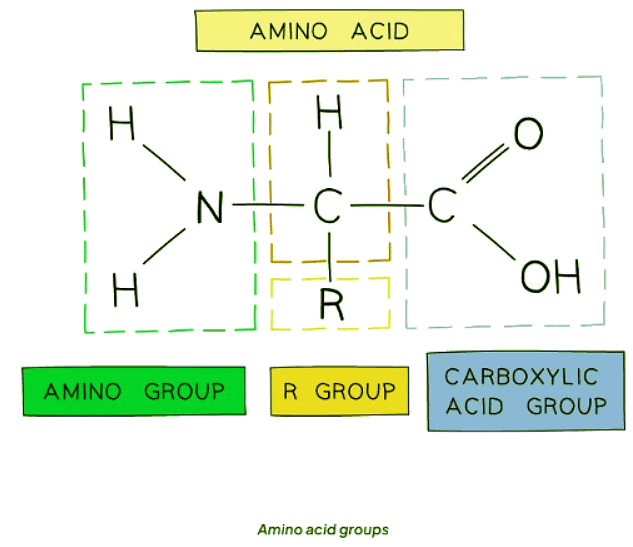Class 10 Exam > Class 10 Notes > Biology for GCSE/IGCSE > The Role of the Liver in Excretion
The Role of the Liver in Excretion | Biology for GCSE/IGCSE - Class 10 PDF Download
Excretion by Deamination of Amino Acids
- Many digested food molecules from the small intestine are transported to the liver for assimilation.
- Assimilation: This process involves converting food molecules into essential compounds needed by the body.
- Among these molecules are amino acids, which play a crucial role in building proteins like fibrinogen found in blood plasma, vital for blood clotting.
- Fibrinogen: A key protein in blood plasma necessary for clot formation.
- Excess amino acids that are not utilized for protein synthesis cannot be stored and undergo deamination.
- Excess amino acids: Additional amino acids beyond what is required for protein formation.
- Deamination: The process of breaking down amino acids by removing their amino group (NH2).
- The amino group (NH2) containing nitrogen is eliminated, leading to deamination.
- Amin(o): The term relates to the removal of the amino group in amino acids.
- Enzymes in the liver facilitate the breakdown of amino acid molecules.
- The carbon-containing portion of these molecules is converted into glycogen for storage.
- Carbon: Part of the amino acid molecule utilized in glycogen formation.
- Glycogen: A storage form of glucose in the body.
- The nitrogen-containing segment is transformed into toxic ammonia, swiftly converted into urea for reduced toxicity.
- Nitrogen: Component of amino acids converted to ammonia during the deamination process.
- Ammonia: Highly toxic byproduct converted into urea for safer excretion.
- Urea dissolves in the blood, transported to the kidneys for excretion, with a minor amount eliminated through sweat.
- Kidney: Organ responsible for filtering and excreting waste products like urea.
- Sweat: Small quantities of urea are also expelled from the body through sweat.

- During deamination, the nitrogen-containing amino group is separated and transformed into ammonia, subsequently converted into urea for excretion.
- The toxic consequences of high urea levels, if it is not excreted effectively, are very serious:
- Cell death
- Reduced response to insulin, leading to diabetes
- Deposits inside blood vessels
Question for The Role of the Liver in ExcretionTry yourself: What is the process called when excess amino acids are broken down by removing their amino group?View Solution
The document The Role of the Liver in Excretion | Biology for GCSE/IGCSE - Class 10 is a part of the Class 10 Course Biology for GCSE/IGCSE.
All you need of Class 10 at this link: Class 10
|
101 videos|193 docs|33 tests
|
FAQs on The Role of the Liver in Excretion - Biology for GCSE/IGCSE - Class 10
| 1. How does the liver play a role in the excretion by deamination of amino acids? |  |
Ans. The liver is responsible for converting toxic ammonia, produced during the deamination of amino acids, into urea through a process called the urea cycle. Urea is then excreted from the body through urine.
| 2. What is the significance of deamination of amino acids in the excretion process? |  |
Ans. Deamination of amino acids is essential for removing excess nitrogen from the body, as nitrogenous waste can be toxic if it accumulates. The process helps regulate the body's nitrogen balance.
| 3. How do amino acids undergo deamination before excretion? |  |
Ans. Amino acids undergo deamination by the removal of the amino group, which forms ammonia. The ammonia is then converted into urea in the liver, which is less toxic and can be safely excreted.
| 4. Can a malfunctioning liver affect the excretion by deamination of amino acids? |  |
Ans. Yes, a malfunctioning liver can affect the excretion of amino acids by deamination. If the liver is unable to convert ammonia into urea effectively, it can lead to a build-up of toxic ammonia in the body.
| 5. Are there any dietary factors that can impact the excretion of amino acids through deamination? |  |
Ans. Yes, the intake of protein-rich foods can increase the amount of amino acids that need to be deaminated and excreted. A diet high in protein can put more strain on the liver and the excretion process, potentially affecting overall excretion efficiency.
Related Searches















